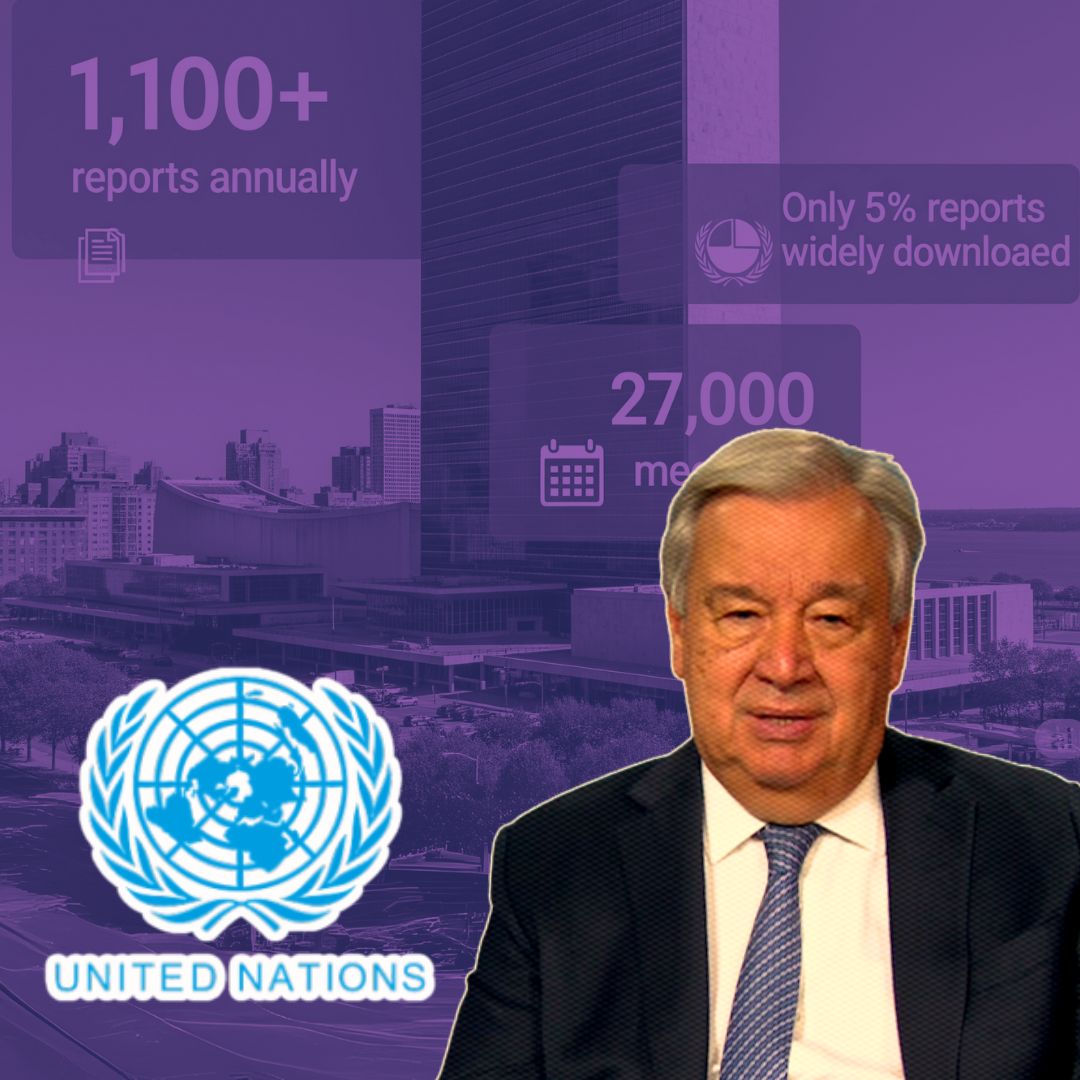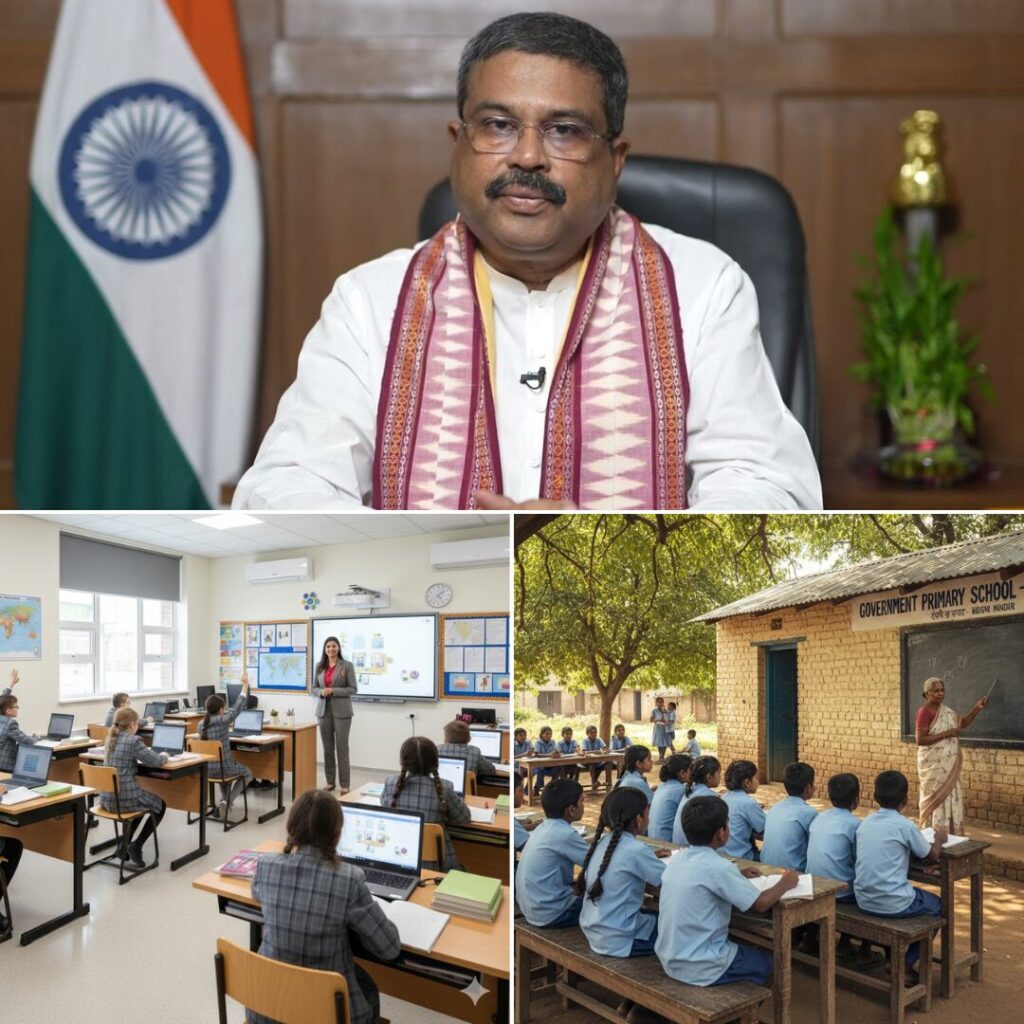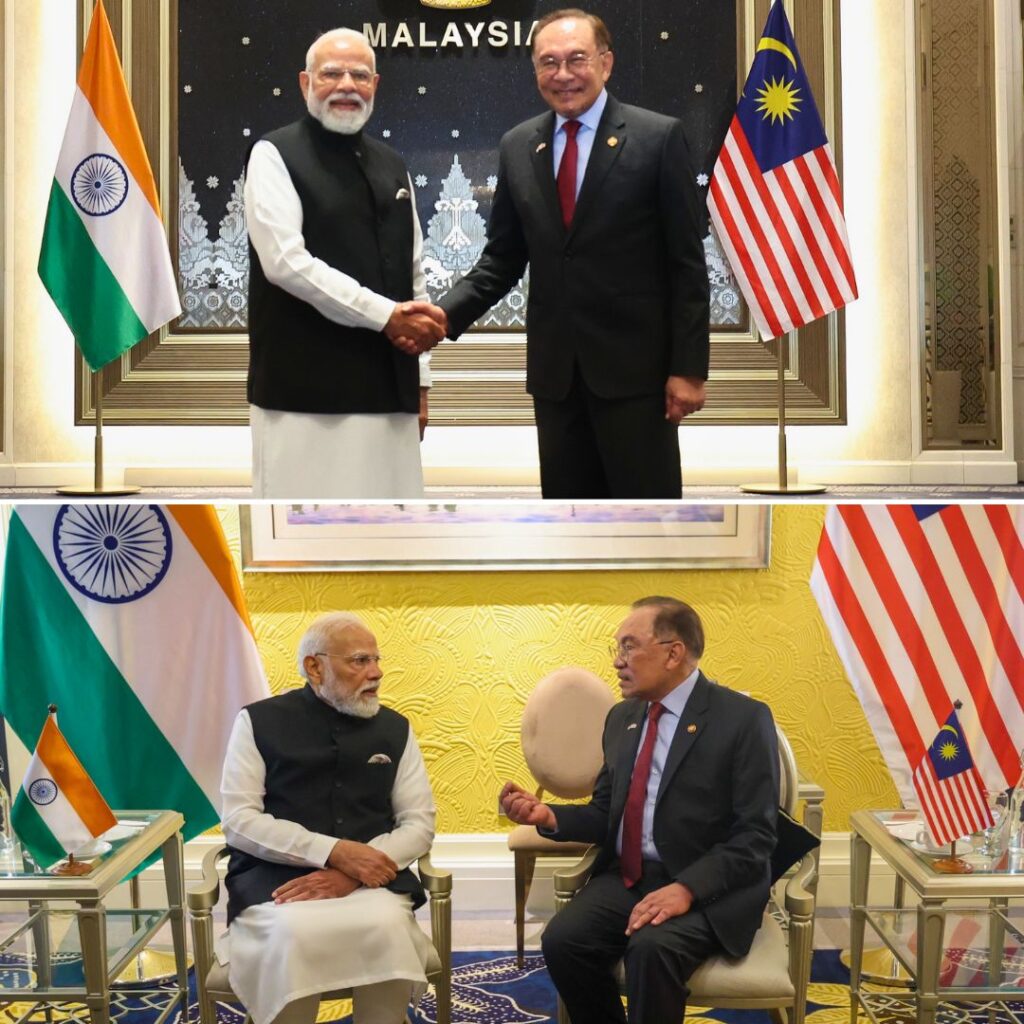A recent UN report highlights a significant disconnect between the volume of United Nations documentation and its readership. Despite producing over 1,100 reports annually to support 27,000 meetings across 240 bodies, only 5% of these reports are downloaded more than 5,500 times, and about 20% receive fewer than 1,000 downloads.
UN Secretary-General António Guterres, presenting findings from the UN80 reform taskforce, raised concerns about inefficiencies amid ongoing financial shortfalls caused by some member states failing to make timely or full payments. He calls for reducing unnecessary reports and meetings, focusing on quality and impact to enhance organisational efficiency.
The scale of the UN’s documentation workload
The United Nations has seen a 20% increase in report production since 1990, now generating approximately 1,100 reports annually. These reports facilitate the work of around 240 different UN bodies and help manage 27,000 meetings a year. António Guterres described this workload as pushing “the system, and all of us, to the breaking point.”
However, the number of downloads does not equate to meaningful engagement; many reports remain unread despite being downloaded. This indicates a need for better communication strategies and prioritisation of reports that fully satisfy mandates, avoiding administrative overload and ensuring outputs have real-world influence.
Context and urgency behind the reform
The UN80 initiative, launched as part of the United Nations’ 80th anniversary celebrations, aims to modernise and improve the efficacy of the organisation. For the seventh consecutive year, the UN faces liquidity challenges as some of its 193 member states delay or fail to pay dues in full.
This ambitious reform also addresses widespread perceptions of inefficiency and responds to financial strains caused by delayed member contributions, aiming to uphold the UN’s relevance in peacekeeping, human rights, climate action, and sustainable development.
The UN80 taskforce recommends streamlining efforts by reducing redundant reports and meetings, improving coherence among mandates, and thereby sustaining the UN’s credibility and relevance in addressing global challenges.
Recent reports such as the Sustainable Development Goals Report 2025 emphasize the urgent need for accelerated progress on global priorities like poverty eradication, climate action, and social equity, highlighting the importance of efficient operations and clear communication in fulfilling these goals.
The Logical Indian’s Perspective
This report exposes the pressing need for the UN to enhance transparency, simplify communication, and foster genuine engagement with global citizens. The Logical Indian strongly advocates for reducing bureaucratic excesses while improving the clarity and impact of UN communications.
By doing so, the UN can rebuild trust, encourage active participation, and foster international cooperation rooted in peace, dialogue, empathy, and collective responsibility. Addressing the communication gap requires innovation beyond cutting down reports. Experts suggest leveraging technology to summarise key findings with clear visuals and interactive formats, making information more accessible for policymakers, media, and the public.
Enhanced translation services can also broaden reach across different languages and cultures, increasing inclusivity. Moreover, fostering partnerships with civil society and educational institutions can help disseminate crucial insights effectively, turning reports into actionable knowledge.
Such strategies could help the UN revitalise its connection with global citizens, ensuring its work not only reaches but resonates, inspiring collaborative solutions to the world’s pressing challenges.












